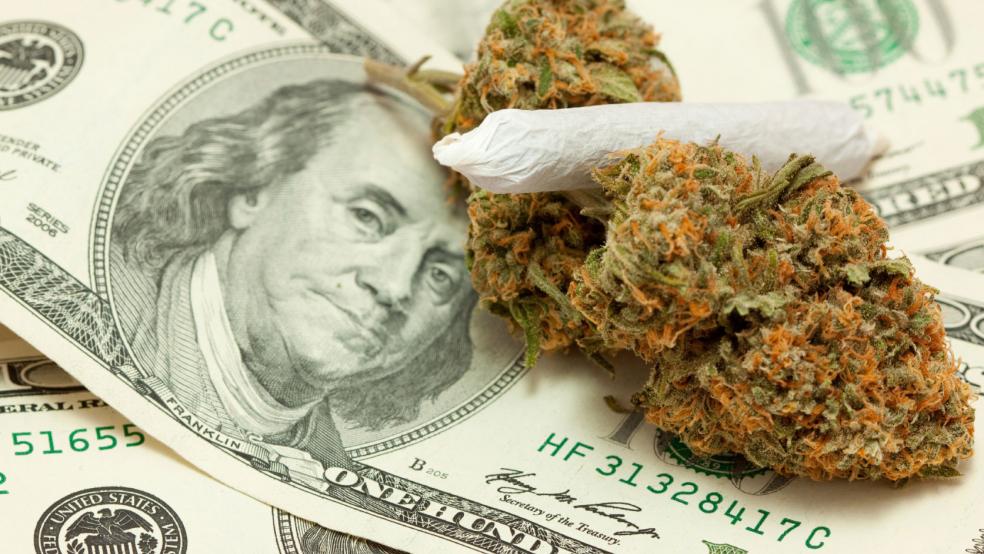To end the stalemate between the federal government and the states over marijuana policy, Sen. Cory Booker (D-NJ) has proposed a bill that would legalize the drug at the federal level and incentivize states to do so locally. From an economic perspective, it’s pretty clear that such a change is a step in the right direction.
While there are still plenty of details to be worked out, a single federal marijuana policy that doesn’t ban first and ask questions later is a good place to start.
Decades of marijuana prohibition show that current enforcement tactics are not working. In spite of hundreds of thousands of marijuana-related arrests each year, it is still the most widely used illicit drug in the United States.
Moreover, history and economic research have shown that drug prohibition often works against many of its own stated goals: the safety and protection of those inclined to use it.
Prohibition, rather than achieving some drug-free utopia, acts as little more than a tax on the drug market. The costs of potential fines, prison time and evading law enforcement become a part of the sellers’ business plans, and the costs are passed on to consumers.
The result is that smaller sellers are driven out while larger operators that can afford the costs — including dangerous cartels — come to dominate the market. The remaining large suppliers can drive up the price of marijuana while making millions in profits that could potentially go to American businesses.
Consumers, many of whom are likely to use marijuana no matter what the law says, must then pay higher prices and routinely deal with criminals, without any regulatory guidelines to protect them.
When it comes to consumer protection, there is some evidence that the internet is providing new tools to help consumers navigate all kinds of markets online, and those tools may play an important role if and when prohibitions fall away.
In a recent paper published in the Journal of Institutional Economics, researchers analyzed 11 months of data on cannabis listings from the now-defunct website Silk Road, concluding that “investment in reputation provides a premium to sellers, creating a framework that incentivizes sellers to deliver good service to buyers, despite anonymity and an absence of ex post recourse.” If the sale of marijuana were legalized, consumers could take advantage of more readily available reviews and rating system —think Yelp — that would most likely emerge.
Do not misunderstand us: We are not claiming that marijuana should be unregulated. There may still be good reason for state governments to remain involved in the market. In fact, there are a number of legal safeguards that we hope would follow full-scale legalization. Consumer protection laws, as well as health and safety regulations, could provide important backstops to an orderly market for marijuana. Issues between buyers and sellers could be resolved fairly in court, and policing efforts can be focused on fraudulent and dangerous actors.
Moreover, when coupled with technological developments like the strong reputational mechanisms found online, such a framework makes us skeptical that the blanket federal prohibition is the correct approach to achieving reasonable public health and safety concerns.
In short, because sellers’ reputations affect their ability to charge a premium in the future, they have every reason to provide the safest services possible.
In addition to legalization, Booker’s bill would nudge states into changing their policies by withholding federal funds for prisons from states with disproportionate marijuana arrest or incarceration rates.
This would only add to the current momentum for reform. Legalization efforts have been underway for some time in several states and the District of Columbia, and each has implemented it differently.
The current patchwork of laws — states still vary greatly on if, how and in what manner marijuana can be consumed — creates criminals out of unsuspecting citizens.
For example, possessing over two ounces of marijuana in the District of Columbia is a crime, but it can be grown, consumed or gifted. In Maryland, possessing more than half an ounce is a crime. In Virginia, any possession is a crime.
A missed stop on the D.C. Metro or a wrong turn in a car (which, as any recent transplant can tell you, are easy mistakes to make) could have serious consequences for an otherwise law-abiding citizen. A single policy would remove the confusion over what laws are in place and where.
Regardless of their intentions, federal policies should be measured by their results. As we have outlined, current marijuana policy is an abject failure. But a long history of bad policy does not have to remain so, and the recent efforts in criminal justice reform show that now is the time to take a different approach toward marijuana.
Christopher Koopman is a senior research fellow at the Mercatus Center at George Mason University. Thomas Savidge is a Mercatus PhD Fellow.





